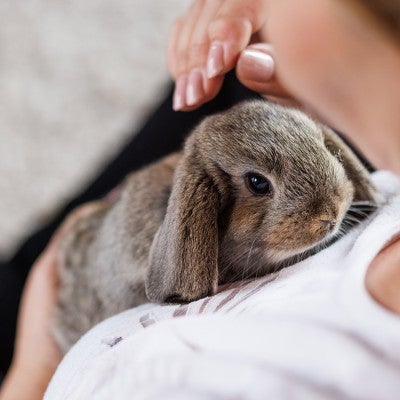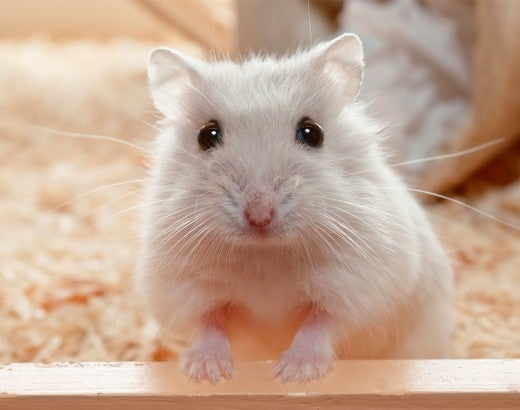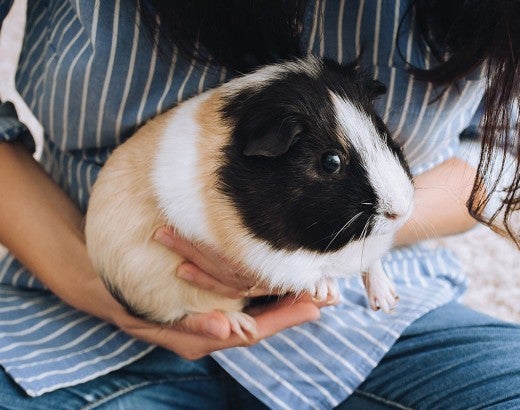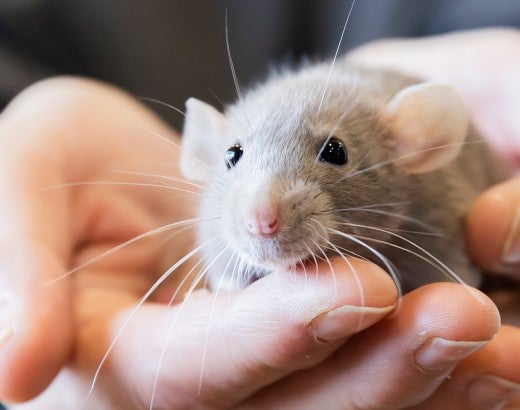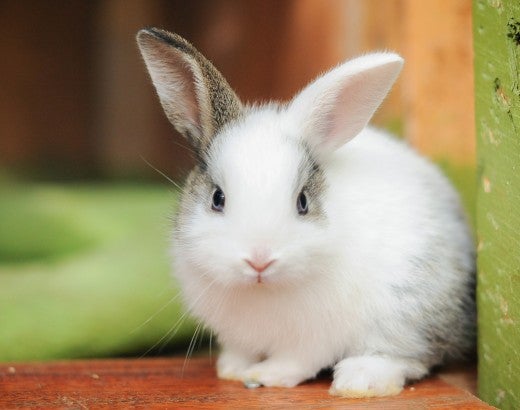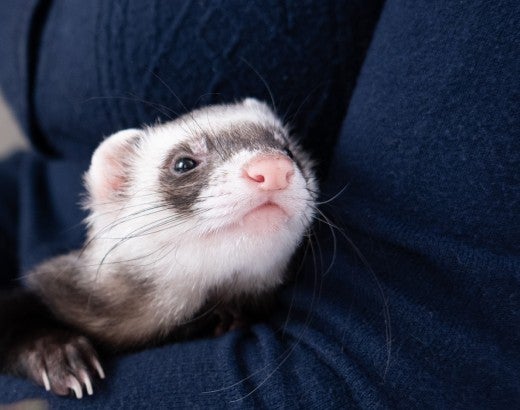Some people might consider hamsters, guinea pigs and other small mammals as starter pets: tools to teach their children—many of whom have begged for a furry friend—responsibility. But while these animals can help kids develop respect and appreciation for all animals, parents should still have realistic expectations about whether or not their kids can handle the responsibility and provide (species-appropriate!) interaction with small, wriggly, easily startled creatures.
Before considering a small pet, learn more about them first and make an informed decision about the commitment they require.
Heart set on a small pet?
![]() BE SURE TO ADOPT. Find your new companion at a local shelter, small animal rescue or a pet store that promotes adoptions from local animal welfare groups. Rodents sold at pet stores tend to come from horrible places that rival the worst puppy mills.
BE SURE TO ADOPT. Find your new companion at a local shelter, small animal rescue or a pet store that promotes adoptions from local animal welfare groups. Rodents sold at pet stores tend to come from horrible places that rival the worst puppy mills.
![]() DO YOUR HOMEWORK. Research different species to figure out which one will fit your lifestyle—and be sure to avoid animals harmed by the exotic wildlife trade, such as sugar gliders and hedgehogs. Consider a hamster if you’re worried about cleaning cages; they’re desert animals and don’t urinate as frequently as other small animals. If you want a smart, affectionate, playful little friend, consider a rat. Once you’ve committed, shelters and rescues can often help match you with a specific critter whose temperament and preferences will best fit your family.
DO YOUR HOMEWORK. Research different species to figure out which one will fit your lifestyle—and be sure to avoid animals harmed by the exotic wildlife trade, such as sugar gliders and hedgehogs. Consider a hamster if you’re worried about cleaning cages; they’re desert animals and don’t urinate as frequently as other small animals. If you want a smart, affectionate, playful little friend, consider a rat. Once you’ve committed, shelters and rescues can often help match you with a specific critter whose temperament and preferences will best fit your family.
![]() MAKE A PLAN. No, small animals don’t need daily walks, but they still have to have food and water every day, plus interaction and a caretaker if you go away on a trip. If you have kids, include them in the planning by having them research the species they want—and maybe even writing up a report on how they’ll care for their prospective new pal. Make sure you’re prepared for all aspects of your new pet’s care, including supervising any jobs you delegate to your children.
MAKE A PLAN. No, small animals don’t need daily walks, but they still have to have food and water every day, plus interaction and a caretaker if you go away on a trip. If you have kids, include them in the planning by having them research the species they want—and maybe even writing up a report on how they’ll care for their prospective new pal. Make sure you’re prepared for all aspects of your new pet’s care, including supervising any jobs you delegate to your children.
Sign up to receive our exclusive e-book full of important information about caring for your pet, including training techniques and answers to frequently asked questions.

